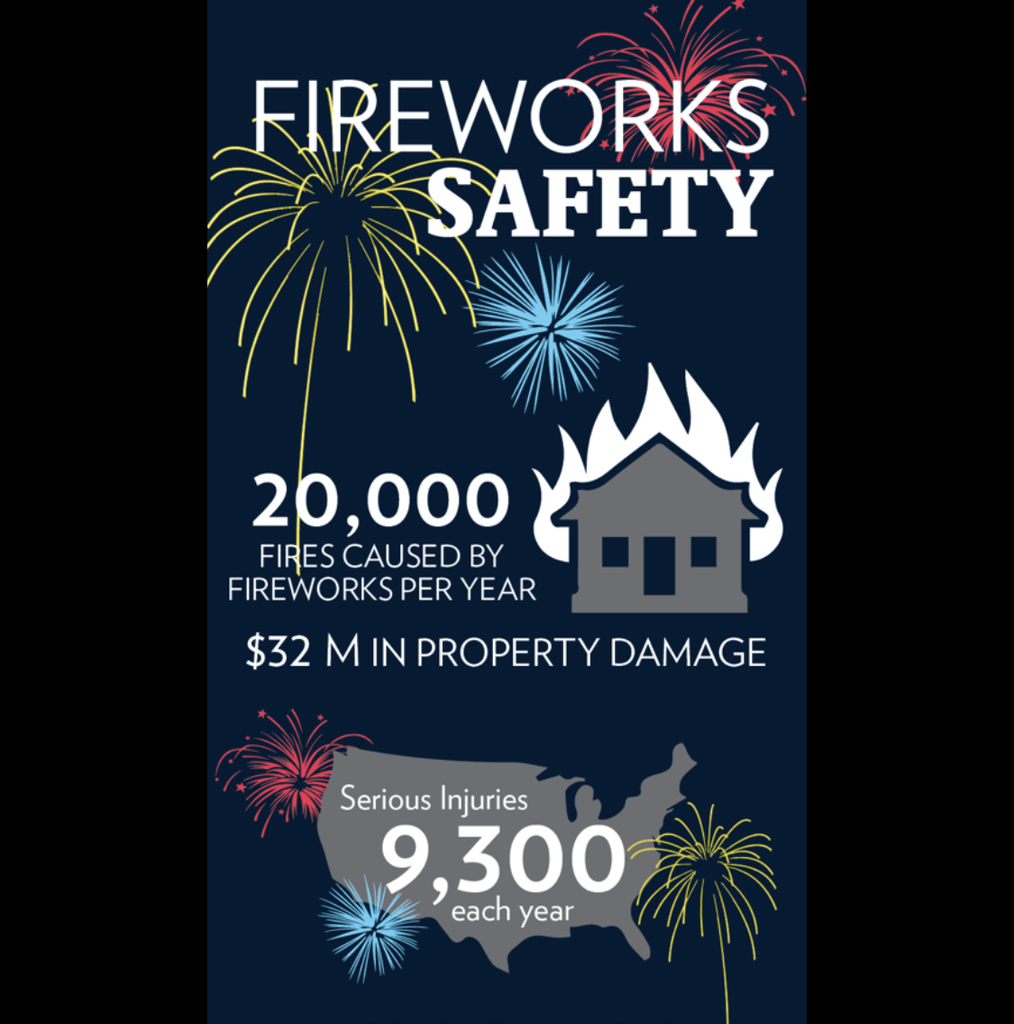Firework Safety on Fourth of July

The Fourth of July is a time for friends and family to get together for barbecues, cooling off by the ocean, lake, or pool and watching your local firework displays. Unfortunately, there will always be folks who prefer to purchase their own devicesand create their own shows at home. Laws vary according to state and individual counties regarding purchasing and utilizing fireworks for individual purposes. Should you desire to purchase your own fireworks for home use, be sure to first check with your local town or municipality to ascertain what your local laws are regarding the purchase and possession of fireworks.
The best practice when it comes to firework safety is simply to leave the fireworks displays up to the professionals. Fireworks are explosives and must be treated with caution. The National Safety Council advises that the majority of fireworks accidents and/or deaths are the result of untrained individuals using professional-grade and/or homemade fireworks.
While the majority of accidents are the result of the use of professional-grade fireworks, the use of perfectly legal devices by children and young adults come in at a close second. Children and young adults should never be allowed unattended around fireworks, sparklers, bottle rockets, poppers, or any type of device which may ignite and cause burns or bodily injury.
After consulting your state and local laws, if you wish to possess and utilize your own fireworks, be sure to review any safety instructions and follow all instructions carefully and with due diligence. Never allow pets around devices. Do not discharge devices in small areas, near brush or foliage, near propane or oxygen tanks, or any other objects which may explode when exposed to heat or flame. Be sure to keep a fire extinguisher and/or water (or whatever liquid or material the device instructions indicate based on the composition of the individual device) on hand to mitigate any situations in which devices discharge early, inappropriately, or too close to flammable objects.
More information on fireworks safety can be found on the National Safety Council’s website by visiting https://www.nsc.org/home-safety/tools-resources/seasonal-safety/summer/fireworks and by contacting your local authorities to get information regarding individual applicable laws.
With the right information and by following simple, common-sense measures, your Fourth of July can be a fun, enjoyable and most of all, safe, celebration for all.
Check out this great infographic from VFIS:

